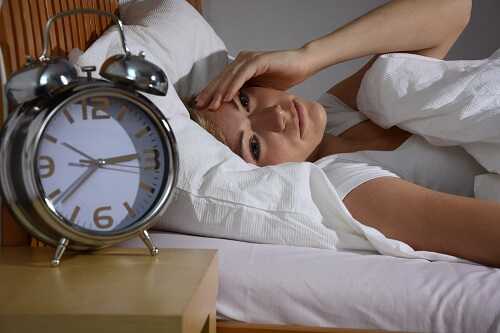According to some medical estimates, insomnia is a problem that over thirty million people in this country alone suffer from every night. Not a sleep disorder in of itself, insomnia is the effect caused by other factors, such as stress, complications from certain medications, various medical conditions, such as acid reflux, as well as sleep disorders such as sleep apnea. Left unchecked, chronic insomnia can cause further complications, such as high blood pressure.
The symptoms of insomnia vary from person to person, including:
- Not being able to fall asleep, even when tired
- Waking up frequently and being unable to go back to sleep
- Waking up feeling tired and unrefreshed after a night’s sleep
- Inability to concentrate during the day
- Feeling drowsy and fatigued during the day
- Dependance on sleeping pills or alcohol to fall asleep.
But here is the good news. With just a few changes in habits and lifestyle, most forms of insomnia can be cured without resorting to medications or sleep specialists.
Many of the lifestyles changes are simple and almost common sense and going against them can be one the causes of having sleepless nights. Assuming the insomnia is not caused by medical conditions or complications from medicines, these are a good beginning:
1. Make sure the bedroom is dark and quiet
All too often, people keep the TV set running as they doze off, or there is a light on somewhere that can cause distraction. Make sure everything, computers, TV sets, radios, etc. are off before trying to sleep. This way you aren’t subconsciously paying attention to something else.
2. Relax before going to bed
All too often, people lie down carrying the day’s stress and worries, expecting sleep to just happen and take it all away. But this is not the case. That stress keeps the brain occupied and prevents sleep. The better idea is to stop and take a few deep breaths, relax the muscles and clear the mind before going to bed. It might be helpful to use an affirmation to prepare for sleep, such as, “I am completely relaxed now and prepared for deep restful sleep.” Repeating this several times and maintaining a clear mind while going to bed should help one settle down to sleep.
Read also – 8 Reasons You Can’t Sleep at Night
3. Don’t take naps late in the day
This can throw off the normal cycles, resulting in going to bed to late and having to get up early, preventing a proper restful sleep.
Read also – 7 Health Benefits of Power Napping
4. Avoid foods that interfere with good sleep
These include caffeine, alcohol, and MSG, which can affect different people in different ways. It is best to avoid these foods and chemicals if the body reacts in such a way as to prevent relaxation and proper sleep. Even a cup of coffee first thing in the morning can affect sleep at night for some people that are overly sensitive to caffeine.
Read also – 4 Ways to Get a Better Night’s Sleep without Medication
5. Don’t eat close to bedtime
Wait at least three to four hours after eating to go to bed, especially in the case of acid reflux or other medical conditions. This allows the body to relax since it isn’t doing any work and, along with mental relaxation, works wonders to help defeat insomnia and sleep better.
Read also – 10 Ways to Sleep Better
6. Exercise regularly
A virtual cure all for almost all areas of health, exercise can benefit sleep as well. It should not be done before bedtime, naturally, since it raises the heart rate and increases the level of adrenalin in the blood stream, but regular exercise several times a week can help cure insomnia.
Read also – 7 Best Ways to Calm your Nerves and Release Stress
7. Use relaxing scents
Aromatherapy has proven that certain scents from essential oils can have positive effects on health and well being. Oils such as lavender, and valerian, among others can help improve relaxation of mind and body and promote a good night’s sleep. Theses essential oils are all natural remedies derived from plants and have been part of healing traditions around the world for thousands of years.
Read also – 11 Incredible Benefits of Lavender Essential Oil
8. Drink herbal tea
Similar to the use of aromatherapy as a cure or aid for various ailments, different herbal teas are known to have beneficial effects on the body. For sleeping, chamomile tea is especially helpful in calming the body. In addition, health food stores may have special blends that can help induce relaxation and sleep or a professional that can make a personal blend right on the spot.
Read also – 5 Reasons Why Everyone Should Drink Green Tea
9. Listen to music
Some classical music, played softly, can be soothing and help put one in the calming state of mind when just laying down to sleep. New age music is also a perfect choice since it tends to have little to no percussion or lyrics and the electronic music can lull a person into lower brain wave patterns and sleep. A possible consideration would be to look into the sleep CDs that feature specially formulated music and tones that can also help in the same way. And the good thing about the CDs is that they can be used over and over again and as you get used to them they will work more efficiently as the sounds will trigger the sleep response faster.
Read also – 7 Great Reasons to Have a Massage
10. Take a relaxing bath
This is one of the oldest remedies, but it works, especially if the cause of the insomnia is simple stress or over worked muscles preventing one from relaxing. Adding bath salts can help as well as adding an essential oil to the water. Remember to just relax in the bath, not exhaust yourself and fall asleep in the tub.
Read also – 7 Surefire Ways to Kick Back and Relax at Night
With any one of these small changes, insomnia can be controlled and the need for pills minimized, possibly eliminated. Of course a doctor should be consulted if insomnia is caused by a medical condition, since in such a case, medication may be needed. Even if that is true, these methods can still help in producing a good night’s sleep. And sleep is always an important part of good overall health.











